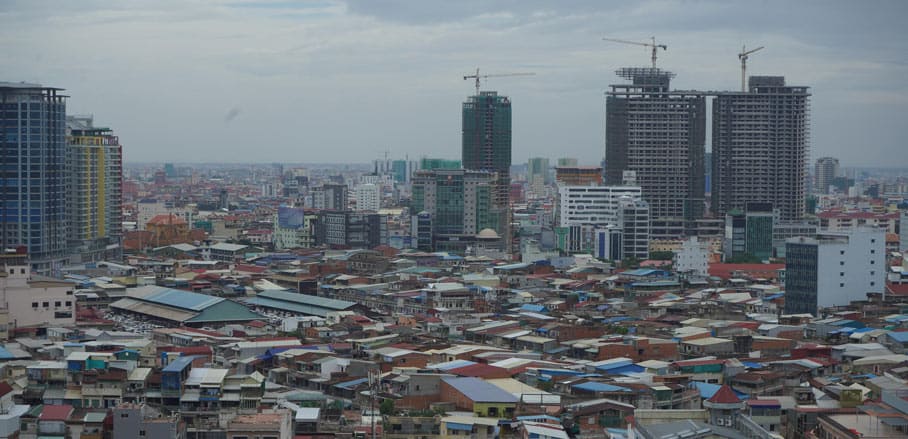Affordable housing in Phnom Penh – Ensuring decent housing opportunities for all

The document titled “Affordable Housing in Phnom Penh: Ensuring Decent Housing Opportunities for All” outlines the critical challenges and opportunities surrounding affordable housing in Cambodia’s capital. It emphasizes the urgent need for effective policies and collaborative efforts to address the growing housing crisis faced by low-income populations.
Overview of the Housing Crisis
Phnom Penh is experiencing rapid urbanization, with a population that has surged to approximately 2.2 million. Despite this growth, housing affordability remains a significant concern, with estimates indicating that 60% to 70% of the population cannot afford market-rate housing. The document highlights that for housing to be deemed affordable, costs must be within USD 15,000 to USD 30,000, yet many units exceed this range, locking out a substantial portion of the populace.
Policy Framework
The Cambodian government has made attempts to address this issue through various policies:
- 2014 National Housing Policy: This was the first legal framework aimed at defining affordable housing and assessing future needs.
- 2017 Policy on the Incentives and Establishment of National Program for Development of Affordable Housing: This policy introduced incentives for developers to create affordable units priced between USD 15,000 and USD 30,000. However, these incentives have proven difficult to access due to stringent criteria and a lack of enforceable legislation.
These policies aim to foster collaboration between the government and private sector but have not yet yielded significant results. Only five affordable housing projects are currently approved in Cambodia, two of which are located in Phnom Penh.
Challenges Faced
Several challenges impede the development of affordable housing:
- High Market Prices: The average price for housing units in Phnom Penh is around USD 80,000, which is unaffordable for many residents.
- Limited Financing Options: Developers face difficulties in securing funding for affordable projects, leading to a scarcity of available units.
- Risk of Over-Indebtedness: Many low-income households resort to loans that exceed their financial capacity, leading to defaults and sacrificing essential services like healthcare and education.
The document stresses that without targeted interventions, low-income groups will continue to be marginalized, resulting in increased inequality and overcrowding in informal settlements.
Proposed Solutions
To tackle these issues effectively, the document suggests several strategies:
- Enhanced Collaboration: There is a need for constructive partnerships among stakeholders—including government bodies, private developers, and NGOs—to create innovative housing solutions that cater specifically to low-income families.
- Sustainable Housing Models: Emphasizing sustainability in housing design can help ensure long-term affordability and environmental responsibility. This includes integrating green building practices into new developments.
- Incentives for Developers: The government should streamline processes and criteria for accessing incentives to encourage more developers to engage in affordable housing projects.
Successful Initiatives
Despite the challenges, there are some positive developments:
- Projects like the Arakawa condominium and the Grand Park Housing Project are examples of efforts aimed at providing affordable units. These projects are designed to meet the price points established by government policies.
- The document also references international design competitions aimed at creating sustainable housing solutions within Special Economic Zones (SEZs), which could serve as models for future developments.
Conclusion
The document concludes by emphasizing the necessity for urgent action to create an inclusive housing market in Phnom Penh. It calls for a comprehensive approach that combines effective policy implementation with innovative financing solutions and community engagement. By addressing these critical areas, Cambodia can work towards ensuring decent housing opportunities for all its residents, particularly those from low-income backgrounds. Overall, the report serves as a call to action for all stakeholders involved in the housing sector to prioritize affordable housing as a fundamental component of urban development in Phnom Penh.

Furthering reading:
[PDF] affordable housing? – PIN Cambodia cambodia.peopleinneed
Affordable Housing Design Challenge to Make Special Economic Zones (Sezs) More Sustainable
